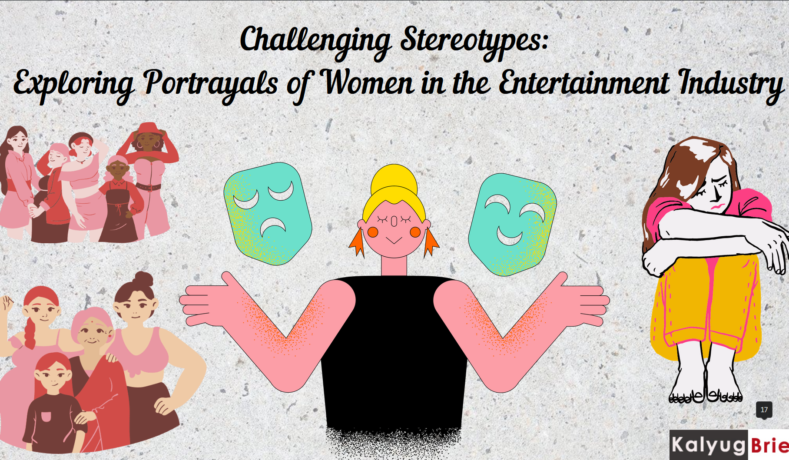Challenging Stereotypes: Exploring Portrayals of Women in the Entertainment Industry
Introduction:
The entertainment industry has always been a powerful medium for storytelling, showcasing a wide range of narratives and characters. However, there have been instances where certain portrayals have raised concerns among viewers, particularly regarding the representation of women. This article delves into the depiction of women in popular media, examining the impact of such portrayals and the need for a more diverse and authentic representation.
Unveiling the Mystery in “Dahaad”: Recently, I had the opportunity to watch the gripping murder-thriller mystery series, “Dahaad,” available on Amazon Prime. The show manages to captivate viewers with its intriguing plot and well-crafted execution. While I cannot reveal the ending, I highly recommend watching it to experience the shocking conclusion firsthand.
Addressing Stereotypes:
Beyond the excitement of the series, I want to highlight a broader concern prevalent in the entertainment industry – the portrayal of women as libidinous individuals lacking scruples. An example that comes to mind is the film “Piku,” where a girl takes care of her elderly father with patience and gentleness. However, the film also depicts her engaging in sexual encounters with different partners. This depiction perpetuates the notion of women being sexually promiscuous without considering the nuanced reality.
An Inaccurate Image:
As an Indian, I feel compelled to challenge the image presented by such portrayals. It is important to recognize that the vast majority of women in India do not embody the stereotype of being constantly sexually driven or hastily engaging in casual relationships. While it is undeniable that some individuals may exhibit such behavior, it is essential to acknowledge that they represent only a small portion of the female population.
Questioning the Intent:
The incident in “Dahaad” where a female police officer engages in a casual encounter with a partner she had established a “no strings attached” relationship with raises questions about the intentions of the entertainment industry. Are they attempting to assert that Indian women possess the same sexual appetites and willingness as Western porn stars, as often depicted in mainstream media? Such portrayals not only oversimplify the complexities of human relationships but also perpetuate harmful stereotypes.
Seeking Authenticity and Diversity:
Instead of reinforcing stereotypes, the entertainment industry should strive for authenticity and diversity in its portrayals. By showcasing a range of female characters with varied personalities, aspirations, and experiences, media can help break down existing stereotypes and provide a more accurate representation of women in society. This approach not only enriches storytelling but also fosters inclusivity and empowers viewers to embrace a broader understanding of human nature.
Conclusion:
As viewers, it is important to critically analyze the representations we encounter in the entertainment industry. By questioning and engaging in constructive dialogue, we can advocate for more accurate and nuanced portrayals of women. Let us celebrate the progress that has been made while advocating for a future where media narratives reflect the diverse realities and identities of women worldwide.














Leave a comment